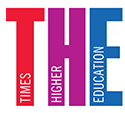mRNA pioneers, Oxford vaccine scientists and Bill Gates are potential contenders for science’s top prize
It may seem absurdly early to think about scientific prizes for Covid medicines while a pandemic is raging. But the astonishing success of scientists in creating effective vaccines so quickly raises the prospect that the Nobels could honour the conquerors of Covid as early as October.
If the Nobel prize really does seek to reward “those who, during the preceding year, have conferred the greatest benefit to humankind”, as Alfred Nobel intended, it may be hard for its foundation to look beyond Covid, especially if any associated breakthroughs bring about a return to normal life by late 2021.
“A lot depends on whether the virus escapes the vaccines,” said James Naismith, director of the Rosalind Franklin Institute and professor of structural biology at the University of Oxford. “We simply do not know how long immunity lasts.”
Professor Naismith said he would be cautious about giving awards before the long-term impact of vaccines was known, but said he believed that they should work as expected.
If that was the case, his Oxford colleagues Sarah Gilbert (pictured below), Adrian Hill and Andrew Pollard were plausible contenders given the likely impact of their affordable vaccine now being produced by AstraZeneca, said Professor Naismith
For “novelty”, however, he pointed to Katalin Karikó as a worthy winner. The Hungarian-born biochemist’s research at the University of Pennsylvania into synthetic messenger RNA (mRNA), alongside long-time collaborator Drew Weissman, was unheralded for decades but laid the groundwork for the two mRNA vaccines by Pfizer-BioNTech and Moderna.
“The entire field of mRNA therapeutics, not just vaccines, should be recognised as a transformative approach to medicine, although the rapid development of the Covid-19 vaccines showcases why these advances are so important,” said Dr Richner, who believes mRNA investigators from the pharmaceutical industry may also merit recognition. One candidate is Andy Geall, whose vaccine team at Novartis’ US research centre managed to vaccinate rats against a respiratory virus using RNA technology back in 2012, he said.
But David Pendlebury, senior citation analyst at Clarivate Analytics, who has used citation data to successfully predict 59 Nobel laureates since 2002, thought a Covid-related Nobel was unlikely this year, citing the committee’s “strong conservatism [that] typically results in a wait of two decades or more before research is recognised”.
“The science must stand the test of time and the vaccines resulting from research must also prove to be effective and safe, which is likely,” said Dr Pendlebury, who said that the committee’s decision to award its medicine prize to the instigators of the prefrontal lobotomy was regarded as a cautionary tale.
“That is not meant to say that Karikó, Weissman and others are not worthy recipients, but that recognition on the part of the Nobel Assembly is doubtful at this time,” he added.
Having spent an estimated $16 billion (£11.6 billion) on vaccine efforts since 2005, including last year’s $1.6 billion contribution to global vaccine alliance Gavi that they co-founded in 2000, some wonder if Bill and Melinda Gates might also merit consideration, albeit for the peace prize.
“Bill Gates definitely deserves greater recognition for predicting back in 2015 that an infectious pandemic would bring the world to a standstill, then putting his money where his mouth was by helping to establish the Coalition for Epidemic Preparedness Innovation (CEPI) with $100 million of funding,” said Beth Breeze, director of the Centre for Philanthropy at the University of Kent, who added that the Gates’ galvanising effect on governments, international organisations and fellow billionaires should also be taken into account.
Giving the award to CEPI and its scientific staff may be the most likely scenario, following similar awards to charity-supported organisations such Médecins Sans Frontières in 1999 and the United Nations World Food Programme last year, said Dr Breeze.

0 Comments